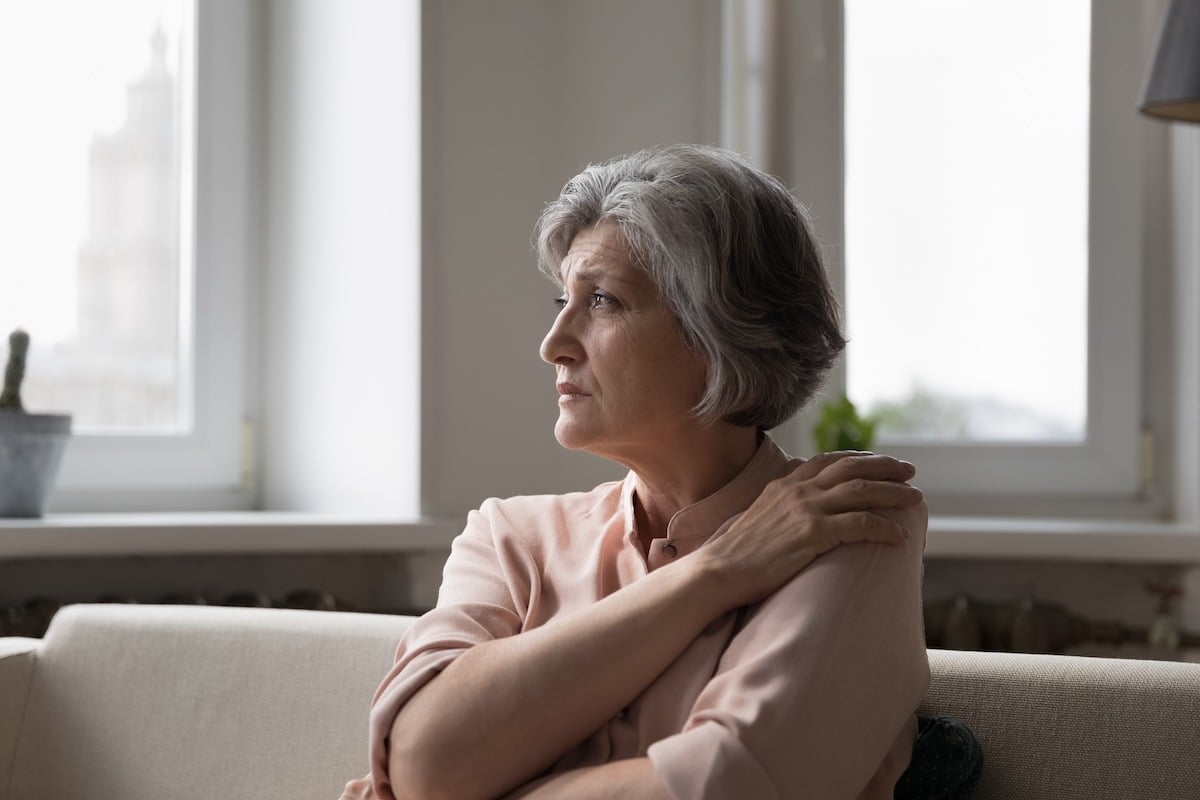
Is it Normal to Have Anxiety as You Age?
Published by Vivage on
Nov 1, 2024 8:00:00 AM
Aging is a natural part of life, but it can bring about new challenges, including anxiety. If you're an older adult experiencing anxiety, you're not alone. With long-term care communities throughout Colorado, our team at Vivage Beecan is exploring why this happens and sharing tips on managing anxiety effectively.
Understanding Anxiety
Anxiety is a feeling of worry, nervousness, or unease. It can manifest in different ways, such as generalized anxiety disorder, panic disorder, or social anxiety. For older adults, anxiety can stem from various sources, including health concerns, life transitions like retirement, and societal perceptions about aging. It's crucial to know these factors to better understand and manage anxiety.
Health issues often play a significant role. Chronic illnesses, pain, and declining physical abilities can lead to increased anxiety. Life changes, such as losing a spouse, changes to mobility, or adjusting to retirement, can also contribute. Societal perceptions, like the stigma around aging and mental health, further exacerbate these feelings. Recognizing these triggers is the first step toward addressing anxiety.
Is It Normal to Have Anxiety as You Age?
It's common to experience emotional responses to aging, such as anxiety. Life brings changes that can be overwhelming. However, while some anxiety is normal, it's essential to recognize when it becomes a concern. Persistent worry, difficulty sleeping, and avoiding social interactions are signs that anxiety might need professional attention.
Normal emotional responses include occasional worry about health or finances. However, if anxiety interferes with daily activities, it may signal a more significant issue. Understanding this distinction helps in seeking appropriate support. Remember, asking for help is a sign of strength.
Coping Strategies and Support
Managing anxiety involves incorporating practical strategies into your routine and seeking support.
Practical Tips
- Stay Active: Regular physical activity can significantly reduce anxiety levels by releasing endorphins, which are natural mood lifters. Even gentle exercises like walking, stretching, or yoga can make a substantial difference in your overall well-being and help clear your mind.
- Maintain Social Connections: Staying in touch with friends and family can provide a crucial support network. Social interactions, whether in person or virtually, can offer emotional support, reduce feelings of loneliness, and foster a sense of belonging.
- Practice Mindfulness: Incorporating mindfulness techniques such as meditation, deep breathing exercises, or progressive muscle relaxation into your daily routine can help calm the mind. These practices encourage staying present, reducing stress, and lowering anxiety levels over time.
- Participate in Hobbies: Dedicating time to activities you enjoy can be a wonderful distraction from anxiety. Whether gardening, reading a novel, painting, or playing a musical instrument, these hobbies can bring joy and a sense of accomplishment, providing a mental break from stress.
- Maintain a Balanced Diet: Consuming nutritious meals not only supports physical health but also has a profound impact on mental health. A diet rich in whole grains, lean proteins, fruits, and vegetables can help stabilize your mood and provide the necessary energy for daily activities.
- Get Adequate Sleep: Establishing a calming bedtime routine, such as reducing screen time before bed or practicing relaxation exercises, can improve sleep quality and prevent anxiety from worsening due to lack of rest.
Seeking Professional Support
Don't hesitate to seek professional help when you're feeling overwhelmed. Therapists and counselors are trained to offer coping mechanisms that are specifically tailored to your individual needs, helping you navigate through challenging times.
Additionally, support groups for individuals experiencing anxiety can be incredibly beneficial, as they offer a space for comfort, understanding, and shared experiences. In these groups, you can connect with others who are facing similar challenges, which can alleviate feelings of isolation and provide a sense of community. Whether one-on-one sessions with a professional or through group discussions, reaching out for support is a crucial step toward better mental health.
While it's normal to experience some anxiety as you age, persistent or severe anxiety should be addressed. Understanding the factors contributing to anxiety, adopting coping strategies, and maintaining a positive lifestyle are crucial steps toward better mental health. Prioritize your well-being and remember that seeking help is a sign of strength, not weakness.
For more tips on managing anxiety and living a fulfilling life, we invite you to reach out to one of our Vivage Beecan communities. Take the first step toward a calmer, happier you today.